Today, as revelers from all over the world crowd "the Wiesn" for Oktoberfest, Germans in Munich and throughout the country head to the polls to elect a new Bundestag. (The Bundestag is one of two national legislative bodies, somewhat like the House of Representatives in the US or the House of Commons in the UK.) The Chancellor, the head of the country, is also selected at this time, but indirectly through the Bundestag rather than by a direct vote.
As newcomers in Germany, we're trying to listen and learn. Flashy and sometimes hilarious political signs line the roads and people are talking politics a lot more than usual. While there are "conservatives" and "liberals," they aren't necessarily attached to the same issues as in the US. So let me just share with you what I've been learning about the process. I've also gotten lots of pictures of the political signs, so if you just want to see those, skip to the end. (If you want to see only the funny ones, skip to the "Fringe Parties.")
By the way, the long German word of the day is Bundestagsabgeordneter ("parliamentary representative").
An example of a ballot from 2005, with the "first vote" for a representative on the left, and the "second vote" for a party on the right.
How Voting Works
Each voter casts two votes. The "first vote," on the left side of the ballot, is for a specific representative from your district. There are 299 of those representatives. The "second vote," on the right side, is for one of a whole bunch of parties, who are apportioned the remaining 299 representatives according to the percentage of "second votes" they get. But here's the complicated part: if the party vote percentage from a certain state is out of proportion with the number of individually elected party representatives from that state, then either that party or its competitors get more representatives in the Bundestag to even things out. Because of this, the actual number of representatives in the Bundestag changes every election. Right now there are 631. And also because of this, it's really important for each of the many parties to have a coherent message and brand so that they get your "second vote." Thus all the posters below!
The Wildcard: Forming a Coalition
A party that gets an absolute majority in the Bundestag gets to decide who becomes chancellor (usually the person who is already the head of the party). But parties rarely get 51%. What usually happens instead is that they team up with each other in a coalition to reach the necessary 51%. Forming the coalition after the votes are in may take months and is a big part of even the campaign process ahead of time, since voters need to know which other parties their party might align themselves with, and under what circumstances.
After the 2005 and 2013 elections, Merkel's party, the more conservative CDU/CSU (Christian Democratic Union and Christian Social Union) allied itself with their mainstream rivals to the left, the SPD (Social Democrats), to form a "grand coalition" (große Koalition or "GroKo") consisting of the two largest parties. But if the SPD had chosen instead to align itself with two smaller parties even farther to the left, they probably could have had their own chancellor instead of Merkel. The moral of the story? The voters don't decide who becomes chancellor–the coalition does.
This year, coalition forming could be a bit of a wild ride. Merkel's party (the CDU/CSU) is polling at about 35%, so they will definitely need one or more partners. It's not so clear that the SPD and CDU/CSU will manage to reunite. If they don't, then the CDU/CSU will have to hitch itself to two smaller parties, probably the FDP (Free Democrats) and the Greens. Meanwhile, the SPD's coalition options are pretty limited if they turn down another grand coalition. At about 22% currently, they would need at least three of the smaller parties to get up to an absolute majority and topple Merkel in favor of their leader, Martin Schulz. Meanwhile, all parties have sworn off an alliance with the radical right AfD (Alternative for Germany), and the feeling is apparently mutual. The upshot? Merkel will probably be chancellor for another four years, but nothing's for certain–maybe not even after another few months.
Graph by KevinNinja (Own work, CC BY-SA 3.0), https://commons.wikimedia.org/w/index.php?curid=46656620
What's at Stake
The big issues this year seem to be the following:
- Immigration
- Security
- Relationship to EU
- Free daycare
- Pensions
- Women's salaries
- The environment
Mainstream Parties: CSU/CDU
The CSU (Christian Social Union, dark blue) is the Bavarian sister party of the CDU (Christian Democratic Union, black) in the rest of Germany, which means they campaign for Merkel. Their posters seem light on policy description and stress their series of slogans, "[The] clear [choice] for ...."
Immigration and security seem to be the two major, interrelated issues they are focusing on this year. As a whole, they are less pro-immigration than the SPD, but they have to reassure their constituency that they have the situation in hand, since a lot of people fear the consequences of Merkel's 2015-2016 immigration policies. Moreover, there have been a number of terrorist attacks on German soil in the last few years, and while the casualties have been low, there is fear that these will become more common. Especially in relatively conservative Bavaria, the CSU doesn't want to lose votes to the radical right AfD.
"[The] clear [choice] for stability." Angela Merkel, chancellor. Apparently, not everyone likes her.
"Strong Bavaria for Germany." A bit of Bavarian patriotism.
"[The] clear [choice] for our land." Both votes for the CSU." Pictured: Minister-president of the state or "Land" of Bavaria, Horst Seehofer. (Something like a governor.)
"Integration: Live the core culture." The term "Leitkultur" has been at the center of a debate for two decades regarding immigration. So far as I understand it, it is the idea of a culture with German or European core values, which newcomers should accept. It is skeptical of "multiculturalism."
"Plain language." Horst Seehofer (Bavarian Minister-president) and Bernhard Loos (parliamentary candidate for Munich North) promise straight talk at an event in the beer hall "Augustiner Keller."
"Because the future begins with the smallest." Dr. Wolfgang Stefinger. Having a doctorate is perceived as indispensable for a German politician.
"Because all generations are crucial."
"Because good solutions are not usually simple."
Mainstream Parties: SPD
The Social Democrats (red) swung up in the polls after they announced the popular Martin Schulz as their leader (essentially, a candidate for chancellor). But that was short-lived, and it seems no one can tell me what his concrete policy plan is. SPD posters focus on socioeconomic issues as well as EU-solidarity. In the wake of Brexit, Germans are debating whether their policies toward the EU should reflect the priorities of Germany or those of Europe. I haven't seen much regarding immigration (perhaps they are strategically keeping quiet), but I did see one of their signs today that bluntly said, "Don't vote for Nazis!" presumably implying the AfD.
"So that everyone has a good retirement." "Sebastian Roloff. He will see [to that]."
"Free daycare. For all children." "Better Goodwin" (Dr. Bernhard Goodwin)
"So that our work is profitable." "Sebastian Roloff. He will see [to that]." The graffiti says, "SPD has betrayed us!"
"Affordable living. In Munich." "Better Goodwin"
"Florian Post, your parliamentary representative." Candidate Post uses his name as a play on words with "post" as "mail."
"Plain language with Florian Post." The SPD is also promising straight talk.
"Post for you. For free daycare."
"Post for you. Just pensions for good work."
Martin Schulz. "A woman who achieves 100% should not earn 21% less." "Why Europe? Because we are stronger together than alone."
"Education shouldn't cost anything. Except some work." "Parents support children. We support parents." "So that your retirement isn't small when your children are big."
Opposition Parties: AfD
These four opposition parties don't have a chance of getting any kind of majority, but they hope to get enough seats to influence parliament and possibly join a coalition. Some may fail to win even one "first vote" or meet the 5% "second-vote" threshold, in which case they are out until the next election.
The AfD (Alternative for Germany, light blue), polling at 10%, is by far the most controversial party and is not seeking to be part of any coalition. In the last few years it has become the anti-immigration party. Not afraid to make politically incorrect and even aggressively anti-Islamic statements, the AfD is perceived by many as something akin to neo-Nazis. One of their posters (not pictured here) shows a European beach scene and says, "Bikinis, not burkas."
"And what is your reason to fight for Germany?" Frauke Petry, chairwoman, AfD party, "Germany, be daring!" The graffiti seems to be a Hitler mustache.
"Dare more democracy: Popular referendums on the Swiss model!"
"Stop leftist terror!" Petr Bystron, candidate for Munich North. (He has provoked much controversy and even state surveillance due to his alleged radically anti-Muslim positions.)
"Courage, truth, Germany. Our land, our rules!"
"Stop asylum abuse: Immigration is a privilege–not a right!"
Opposition Parties: FDP
The Free Democrats (yellow) fall somewhere between the CDU/CSU and SPD on the left-right spectrum and could be a coalition partner for either, I think. They seem to be campaigning on the promise of new and innovative ideas, with the slogan, "Let's think new." But even Germans have told me that their posters are somewhat unintelligible.
Dr. Lukas Köhler (Munich candidate), "School cones change the future. Not bureaucrats. Let's think new." Schultüten are paper cones filled with goodies that families give to kids on their first day of school.
Christian Lindner, "Digital first. Qualms second. Let's think new." (I'm at a loss as to how to understand the incomplete sentences of this half-English, half-German slogan!)
"Bureaucracy-free year for start-ups!"
Opposition Parties: The Greens
Main issues for the Greens (green) are (not surprisingly) the environment, as well as integration. Their posters sport the slogan, "That's why Green," and all their event announcements say, "Come by bike." They are a coalition-candidate for the SPD and (less likely) for the CDU/CSU.
"Cem Özdemir is here." The leader of the Green party is the son of a Turkish guest worker and describes himself as a "secular Muslim."
"Both just and green." Doris Wagner, direct candidate for Munich North
"Healthy air doesn't come from a filthy exhaust."
"Eco! Dieter Janacek, parliamentary representative, your candidate for Munich West/Central."
Opposition Parties: The "Left"
The "Left" party is the successor to the East-German socialist party. This legacy makes it tough to form alliances, as in 2005 and 2013. Their posters focus on social issues.
"At home: Rents must be payable. The Left."
"Protect children from poverty. The Left."
"Social. Justice. Peace. For all. The Left." Head candidate and party chairman, Bernd Riexinger.
Fringe Parties: "Pirates"
The remaining parties have little chance of sending a single candidate to parliament, but they live for the hope that they will one day–and for the chance to make a statement in the meantime.
And yes, you read that right, there is a "Pirate" party. Their issues are Internet-centered and their slogan is, "Look forward to a new land!" I suppose it should be "Land ahoy!"?
"Social, liberal, digital." Ludwig Maximilian University of Munich is in the background.
"My favorite things to protect are data, basic rights, and chicks." Anja Hirschel, head candidate. ("Bienen" literally means "bees," but I suspect the slang is being used here as "attractive woman.")
In black: "Germany: surveillance state, affair with diesel, [staffing] crisis in care [institutions], food-handling scandals, unemployment payments, censorship, ..." In yellow: "Freedom, transparency, justice"
Fringe Parties: Bavaria Party
The Bavaria Party wants the State of Bavaria to become an independent country, hearkening back to the good old days when kings Maximilian and Ludwig ruled.
"The Current Constitutional-Amendment-Attack on Bavaria's Statehood!" (event by Florian Weber, party chairman) and "The Upper Bavaria Council: Homeland and Identity" (by Hubert Dorn, general secretary). "For a free Bavaria." This poster appropriately hangs next to a Bavarian-made BMW.
Fringe Parties: MLPD
The Marxist-Leninist Party of Germany might sound scary, but it only got 0.1% of the vote in 2013. They have a lot of posters up, but I'm supposing they won't be able to pull of a 50-fold increase in voters. Their slogan is "Vote List 13. Logical."
"VW, RAG [coal-mining company], ... Criminally prosecute those who ruin the environment."
"Equal rights for migrants and Germans"
"Against all imperialistic aggression!"
"Capitalism [crossed out]–real socialism!"
Fringe Parties: ÖPD
The Ecological Democratic Party. Nuff said.
"Fair trade now! CETA, TTIP, TISA are a thing of yesterday."
"Respect for animals now! Animal cruelty is a thing of yesterday!"
"Independent parties now! Company donations are a thing of yesterday!"
Fringe Parties: DKp
The German Communist Party. Not exactly sure why they haven't merged with the Marxist-Leninist Party!
"Up with salaries. Down with armament. Stop the national arms build-up." The Ludwig Maximilian University of Munich is in the background.
If the fringe parties aren't wild enough for you, you can read up on the satirical party, "Die PARTEI."
Thanks for reading, and I hope you will be praying for Germany today and in the days ahead.

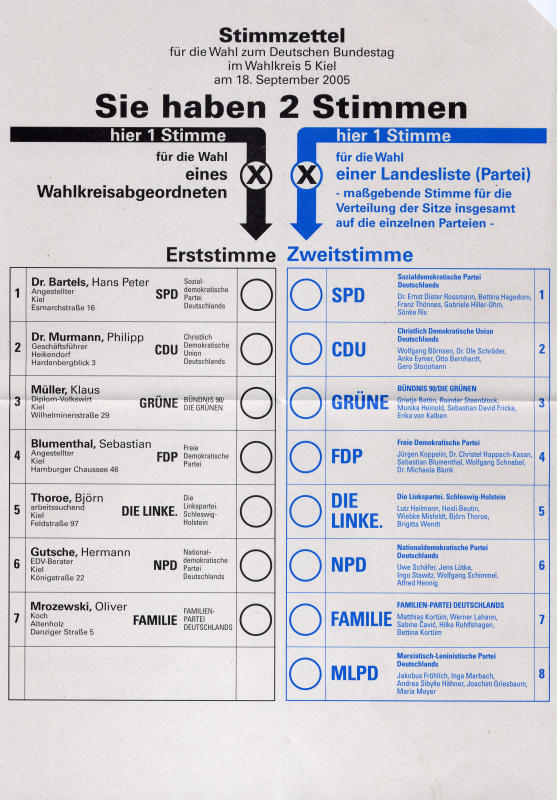
!["[The] clear [choice] for stability." Angela Merkel, chancellor. Apparently, not everyone likes her.](https://images.squarespace-cdn.com/content/v1/54ea1a9be4b0c4f915fe08d1/1506169343655-JH8AIHGOPQCSJ7GLEMQM/political-csu-12.jpg)

!["[The] clear [choice] for our land." Both votes for the CSU." Pictured: Minister-president of the state or "Land" of Bavaria, Horst Seehofer. (Something like a governor.)](https://images.squarespace-cdn.com/content/v1/54ea1a9be4b0c4f915fe08d1/1506187095447-DIHKZMO5YQA2FVS4228F/political-csu-44.jpg)

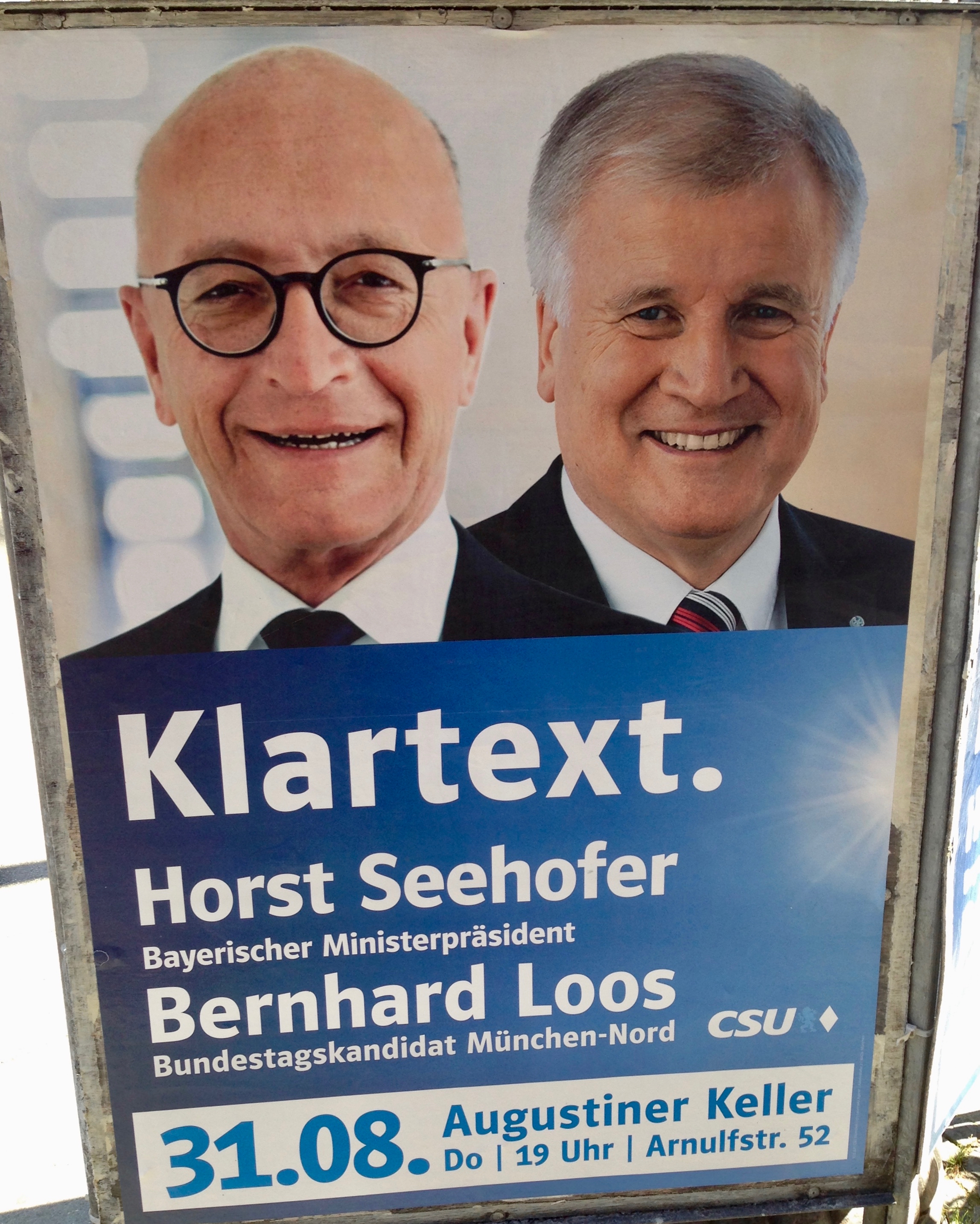



!["So that everyone has a good retirement." "Sebastian Roloff. He will see [to that]."](https://images.squarespace-cdn.com/content/v1/54ea1a9be4b0c4f915fe08d1/1506189297434-MFU1QC2A7KFGVOCJB9Q6/political-spd-16.jpg)

!["So that our work is profitable." "Sebastian Roloff. He will see [to that]." The graffiti says, "SPD has betrayed us!"](https://images.squarespace-cdn.com/content/v1/54ea1a9be4b0c4f915fe08d1/1506189452427-5MCZBMCA7QYA1OJLFBLH/political-spd-17.jpg)
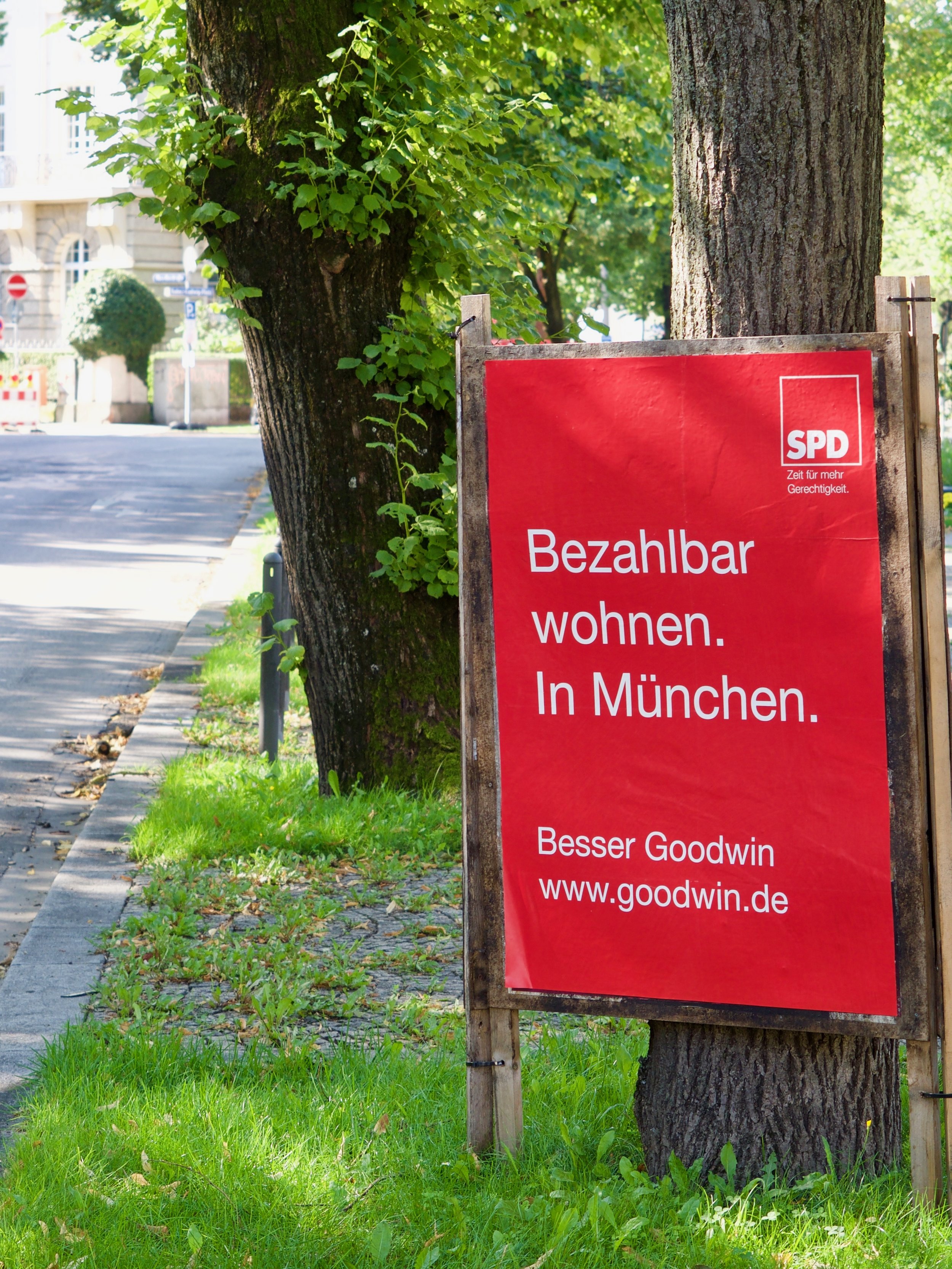

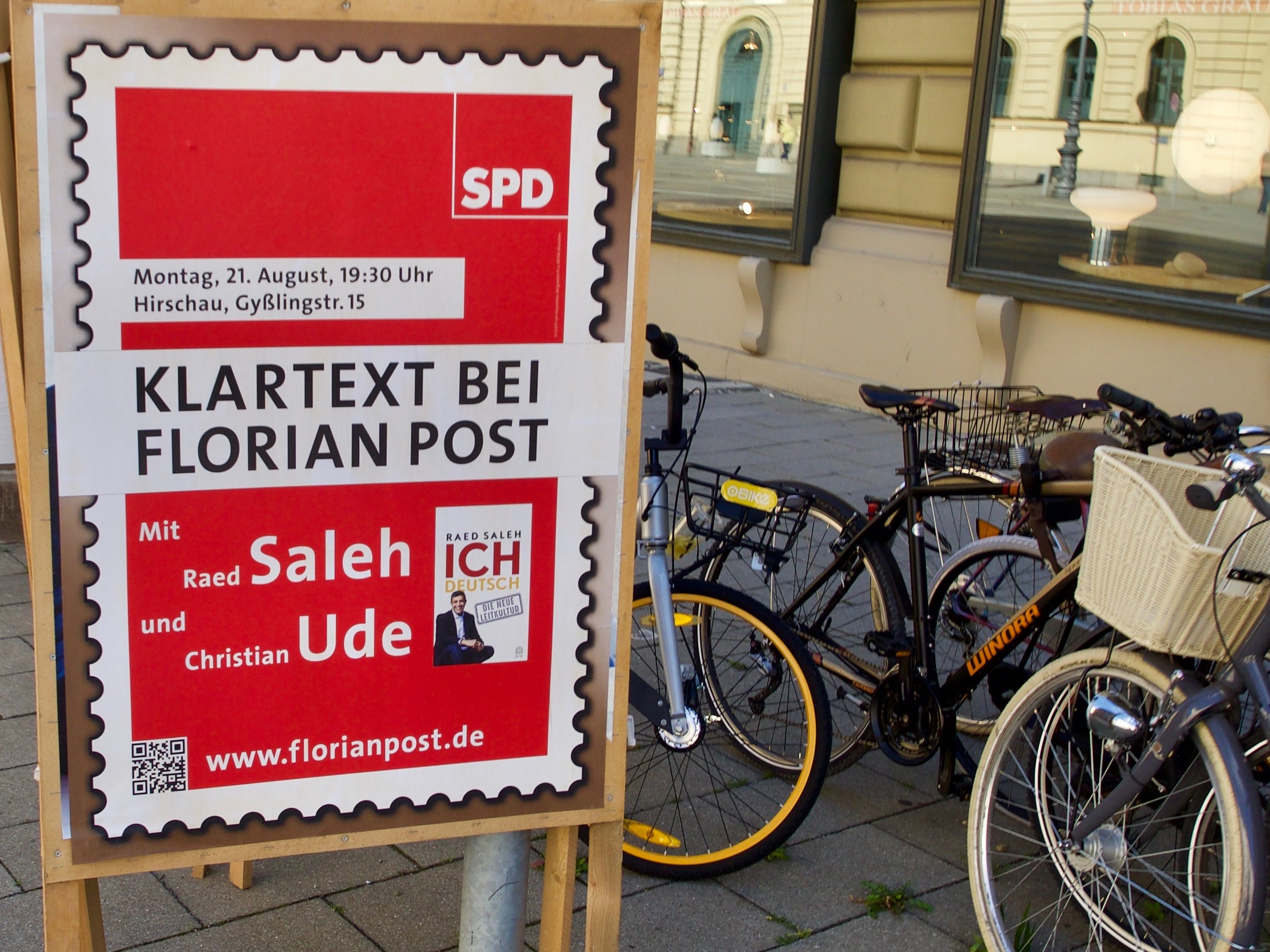




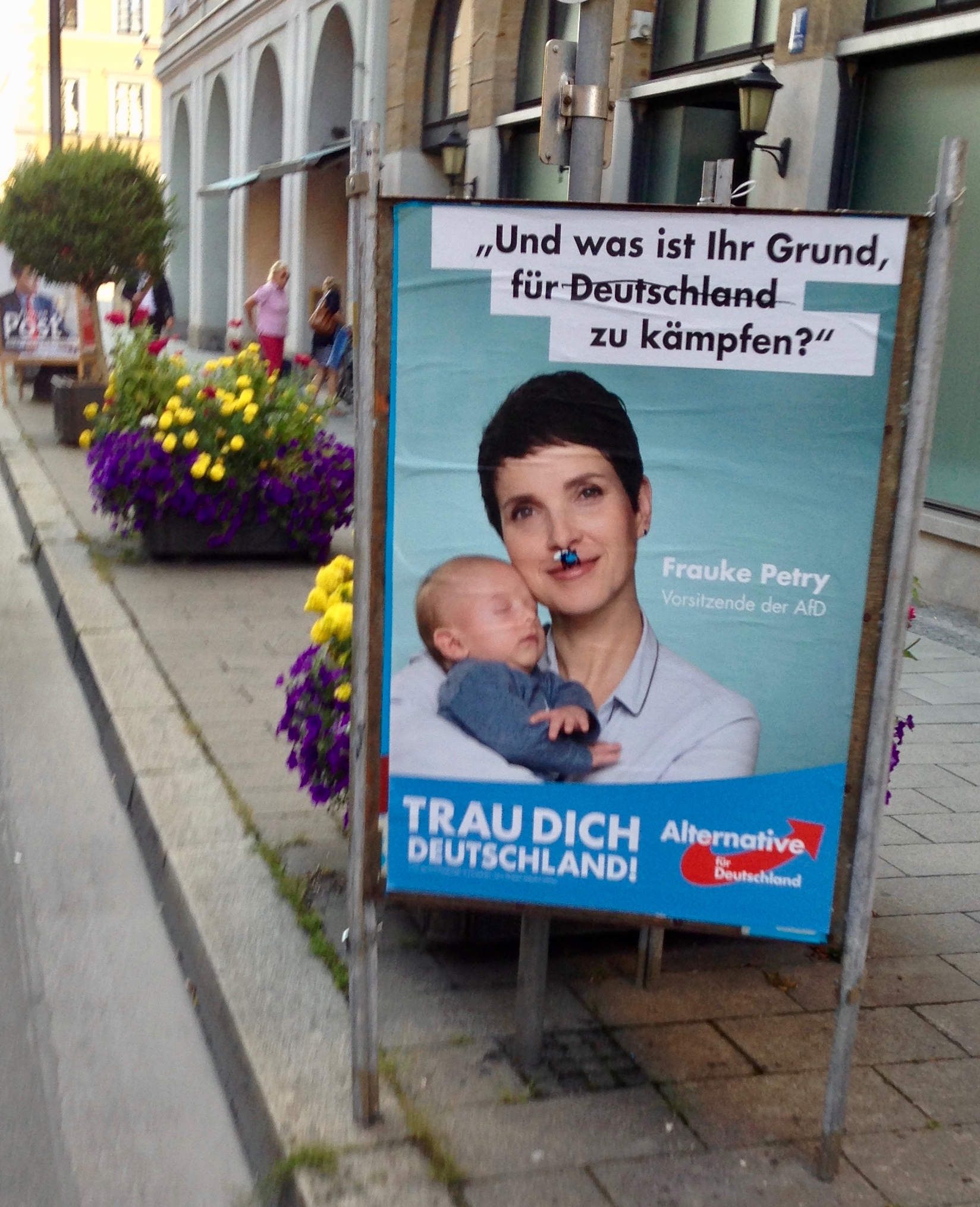














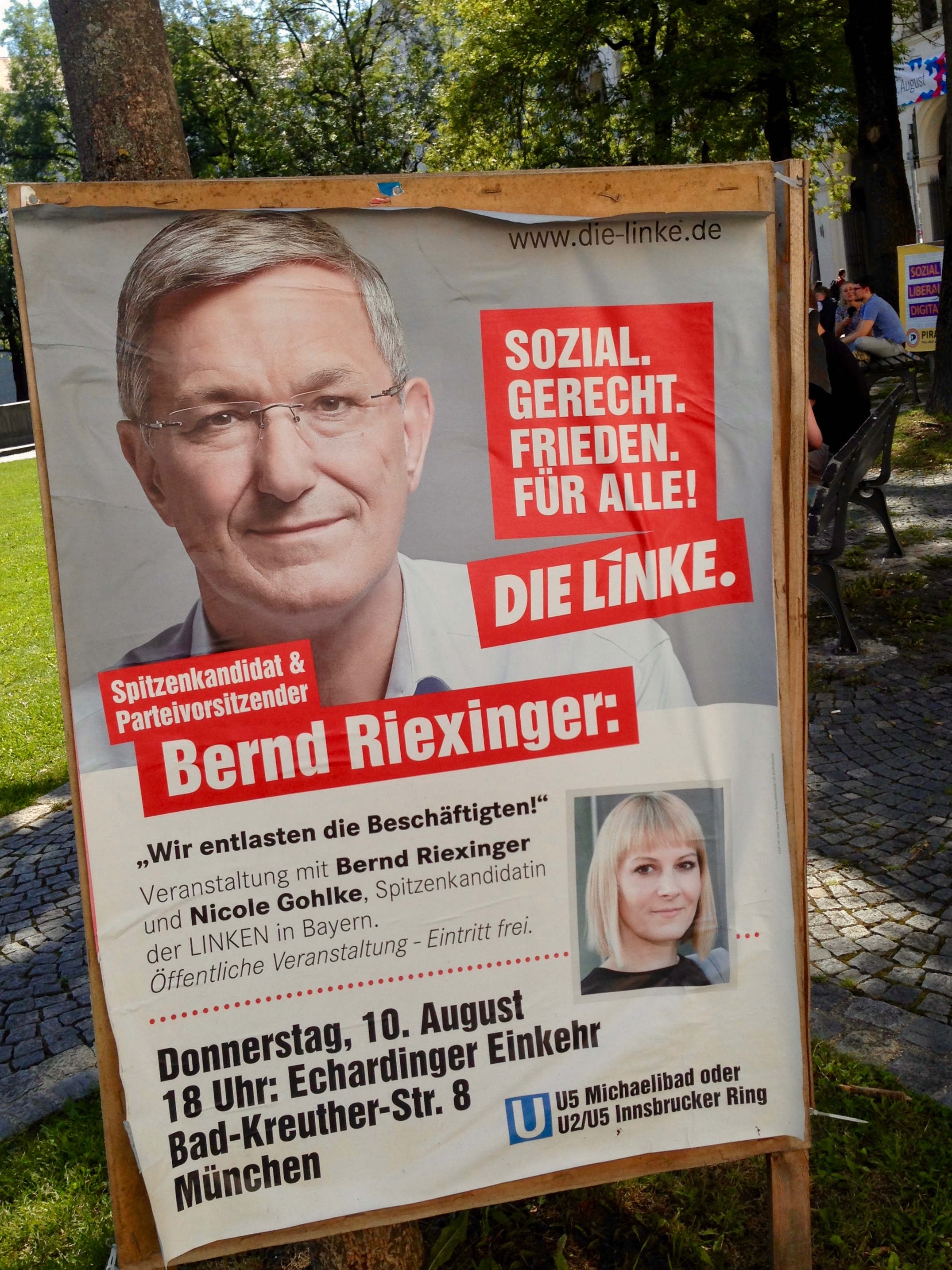
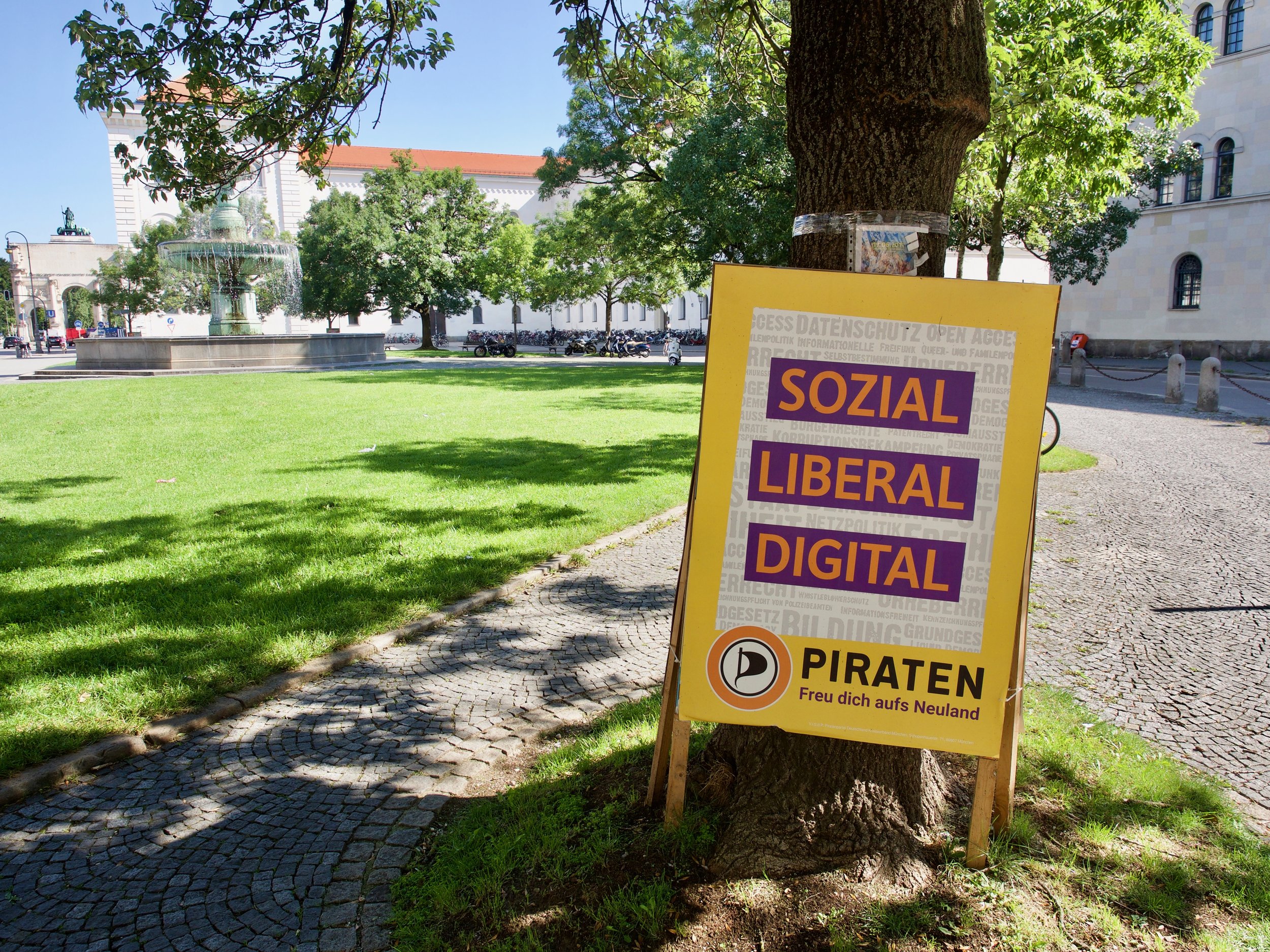

![In black: "Germany: surveillance state, affair with diesel, [staffing] crisis in care [institutions], food-handling scandals, unemployment payments, censorship, ..." In yellow: "Freedom, transparency, justice"](https://images.squarespace-cdn.com/content/v1/54ea1a9be4b0c4f915fe08d1/1506196922003-ZL77KWC8YS1N98QK0BKQ/political-piraten-04.jpg)

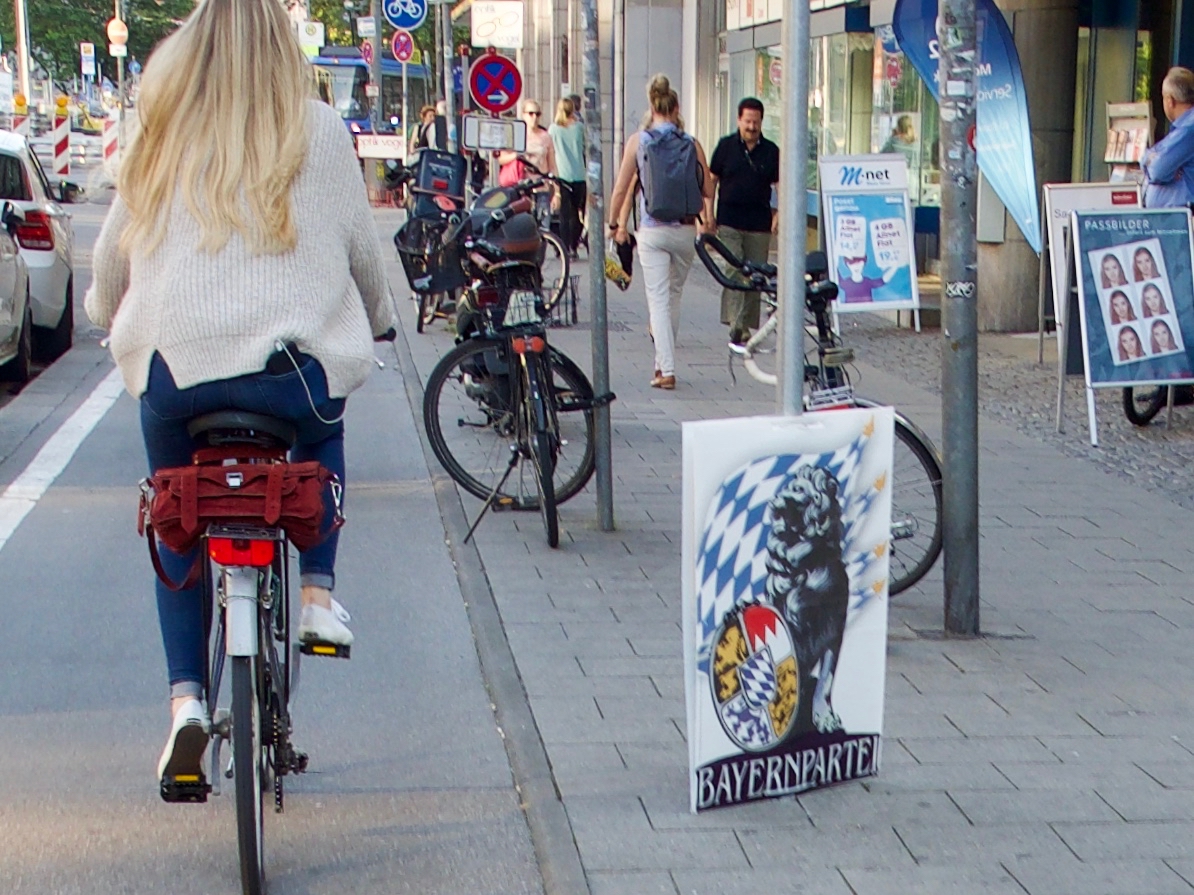
!["VW, RAG [coal-mining company], ... Criminally prosecute those who ruin the environment."](https://images.squarespace-cdn.com/content/v1/54ea1a9be4b0c4f915fe08d1/1506195017530-FVUY1BCFAJHDOJO1GHYY/political-mlpd-30.jpg)


!["Capitalism [crossed out]–real socialism!"](https://images.squarespace-cdn.com/content/v1/54ea1a9be4b0c4f915fe08d1/1506195560097-MTEL1EZ5RBQ6HQ3DVOL9/political-mlpd-33.jpg)



